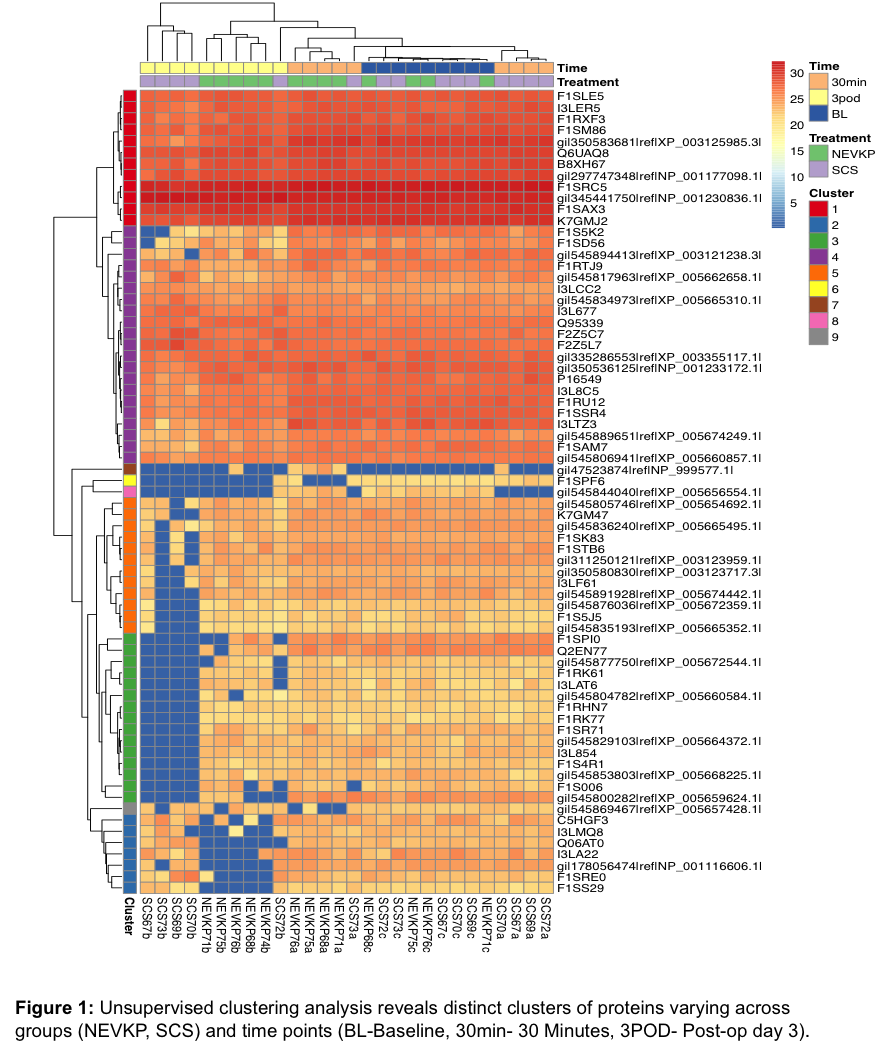Novel Molecular Mechanisms Associated with Normothermic Ex-Vivo Kidney Perfusion
1MOT Programme, University Health Network, Toronto, ON, Canada, 2Krembil Research Institute, UHN, Toronto, ON, Canada, 3Institute of Medical Science, University of Toronto, Toronto, ON, Canada, 4Sick Kids Research Institute, Toronto, ON, Canada
Meeting: 2019 American Transplant Congress
Abstract number: A97
Keywords: Ischemia, Kidney transplantation, Machine preservation
Session Information
Session Name: Poster Session A: Ischemia Reperfusion & Organ Rehabilition
Session Type: Poster Session
Date: Saturday, June 1, 2019
Session Time: 5:30pm-7:30pm
 Presentation Time: 5:30pm-7:30pm
Presentation Time: 5:30pm-7:30pm
Location: Hall C & D
*Purpose: Normothermic ex-vivo kidney perfusion (NEVKP) is associated with significantly improved graft function following transplantation in comparison to static cold storage (SCS), however the molecular mechanisms underpinning this improvement remain unclear. We hypothesized that NEVKP induces key alterations in the renal proteome compared to SCS, and comprehensive proteomics analysis will reveal molecular mechanisms central to superior graft function in this setting.
*Methods: Porcine kidneys were removed following 30 minutes of warm ischemia, before being subjected to either SCS or NEVKP (n=5 each) for 8 hours prior to auto-transplantation. Kidney biopsies were collected at time zero, upon reperfusion, and at POD3. We conducted an unbiased proteomics analysis by LC-MS/MS on Q-Exactive-Plus mass spectrometer. Subsequent analyses were performed using MaxQuant, Perseus, IID, pathDIP, mirDIP, NaVIGATOR and Cytoscape.
*Results: Renal function was significantly improved with NEVKP in comparison to SCS with higher creatinine clearance on POD3 (F-test, p<2.23 x 10 -15). We identified 6,354 proteins in total (FDR<0.01), with 71 proteins identified as significantly differentially expressed between experimental groups and time points (2-way ANOVA, p<0.05). Unsupervised clustering analysis revealed distinct clusters of proteins segregating the experimental groups at POD3 (Fig1). Enrichment analysis demonstrated that proteins increased in SCS as compared to NEVKP kidneys mediated inflammation, antigen presentation, extracellular matrix production & fibrosis (e.g. CD40, THBS1, JUN, XRCC6). MicroRNAs predicted to regulate these SCS-dominant proteins included miR-129 and miR-206. In contrast, proteins increased in NEVKP as compared to SCS were mostly metabolic, mediating energy production through TCA cycle (e.g.ACO2, COX4I1, ATP5J2, ETFB). Predicted regulators for these proteins included miR-203, miR-199, and the transcription factor ZNF143.
*Conclusions: NEVKP may repair grafts by diminishing inflammatory/fibrotic signals & altering metabolism via the TCA cycle. Conversely, proteins enriched in SCS kidneys are associated with fibrogenic and inflammatory pathways. Our findings may yield novel therapeutic targets to attenuate injury associated with warm ischemia.
To cite this abstract in AMA style:
McEvoy C, Tokar T, Reid S, Urbanellis P, Hamar M, Kaths M, Jurisica I, Robinson L, Selzner M, Konvalinka A. Novel Molecular Mechanisms Associated with Normothermic Ex-Vivo Kidney Perfusion [abstract]. Am J Transplant. 2019; 19 (suppl 3). https://atcmeetingabstracts.com/abstract/novel-molecular-mechanisms-associated-with-normothermic-ex-vivo-kidney-perfusion/. Accessed February 18, 2026.« Back to 2019 American Transplant Congress

